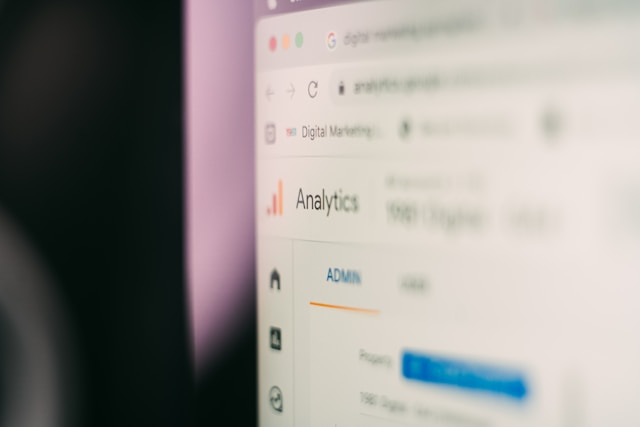In today’s digital world, customers are more connected, informed, and empowered than ever before. Traditional marketing methods that rely on generic messages and mass targeting are quickly becoming obsolete. The rise of data analytics has revolutionized the way businesses interact with their customers, offering new ways to understand, anticipate, and meet individual needs.
Data analytics provides a powerful lens through which marketers can interpret consumer behaviors, preferences, and trends. It enables businesses to create highly personalized experiences that resonate with their target audiences. This evolution has placed customer data at the core of marketing strategies, transforming how brands communicate and build lasting relationships.
What Is Data Analytics and Why It Matters in Marketing
Data analytics refers to the process of collecting, organizing, analyzing, and interpreting vast amounts of data to discover patterns, trends, and insights. In the context of marketing, data analytics allows companies to delve deep into customer interactions across various platforms to understand what drives decision-making.
Whether it’s analyzing website traffic, social media engagement, or purchase history, data analytics gives businesses the tools to make informed marketing decisions. The insights derived can influence product development, campaign targeting, content creation, and customer service improvements. The ultimate goal is to increase engagement, loyalty, and conversions through strategic personalization.
The Role of Big Data in Understanding Customer Behavior
Big data plays a pivotal role in enhancing marketing efforts. Every digital touchpoint a customer interacts with leaves behind a trail of data. From browsing behavior to email click-through rates, each piece of information contributes to a bigger picture of who the customer is and what they value.
By leveraging big data, companies can identify micro-segments within their audience and tailor content that appeals directly to each group. This precision targeting not only improves customer experience but also boosts the return on investment (ROI) of marketing campaigns. It’s no longer about guessing what customers want; it’s about knowing.
Types of Data Analytics in Marketing
Data analytics in marketing can be broadly classified into four types: descriptive, diagnostic, predictive, and prescriptive analytics. Each type plays a unique role in shaping marketing strategies.
Descriptive analytics helps marketers understand what has happened in the past. It includes metrics like website visits, sales figures, and social media performance.
Diagnostic analytics takes it a step further by examining why something happened. It looks for patterns and correlations in the data.
Predictive analytics forecasts future trends based on historical data. For instance, it can predict which products a customer is likely to buy next.
Prescriptive analytics recommends specific actions to achieve desired outcomes. It suggests the best course of action to optimize marketing performance.
Using Customer Data to Build Buyer Personas
One of the most effective ways to use data analytics in marketing is to create detailed buyer personas. A buyer persona is a semi-fictional representation of your ideal customer, based on real data and insights.
Marketers collect demographic information, online behavior, buying patterns, and even psychographic data to build comprehensive customer profiles. These personas help tailor messaging, choose the right channels, and design offers that are more likely to resonate with each segment.
Buyer personas also guide content strategy by informing the topics, tone, and timing of communications. With accurate personas, companies can ensure they are speaking directly to the needs and desires of their audience.
Personalization Through Data-Driven Campaigns
Personalized marketing is no longer a luxury; it’s an expectation. Customers are more likely to engage with brands that offer relevant, timely, and personalized content. Data analytics makes this possible by revealing insights into individual preferences and behaviors.
For example, using past purchase history, marketers can recommend complementary products or offer personalized discounts. Email campaigns can be customized based on browsing activity, and ads can be retargeted to reflect items a customer has shown interest in. These tactics lead to higher engagement and conversion rates.
Enhancing Customer Experience with Real-Time Data

Real-time data analytics allows marketers to react instantly to customer behavior. This is particularly valuable in fast-paced digital environments where customer preferences can change rapidly.
By monitoring real-time data, companies can adjust campaigns on the fly, optimize website performance, and deliver timely messages that capture attention. For instance, if a customer abandons their cart, an automated email with a special offer can be sent immediately, encouraging them to complete the purchase.
Measuring the Success of Data-Driven Marketing Campaigns
To ensure data-driven strategies are effective, it’s essential to measure the results. Key performance indicators (KPIs) such as conversion rates, click-through rates, and customer lifetime value provide insight into what’s working and what needs adjustment.
Advanced analytics platforms offer dashboards and visualizations that make it easier to track performance across multiple channels. These tools help marketers fine-tune their strategies and allocate resources more effectively.
Challenges in Implementing Data Analytics in Marketing
Despite its advantages, adopting data analytics in marketing comes with challenges. Data privacy and compliance issues, such as GDPR and CCPA, require businesses to handle customer data responsibly. There is also the challenge of integrating data from multiple sources and ensuring its accuracy.
Additionally, businesses may struggle with a lack of skilled personnel or the right tools to interpret complex data sets. Overcoming these hurdles is essential to unlocking the full potential of data analytics.
Future Trends: AI and Machine Learning in Marketing Analytics
The future of data analytics in marketing is closely tied to advancements in artificial intelligence (AI) and machine learning. These technologies can process vast amounts of data at lightning speed, uncovering patterns and insights that would be impossible for humans to detect.
AI-powered chatbots, recommendation engines, and predictive models are already enhancing customer interactions and driving more efficient marketing campaigns. As these technologies continue to evolve, marketers will be able to create even more personalized and impactful experiences.
Embracing Data Analytics for Marketing Success
In a competitive marketplace, understanding your customers is the key to staying ahead. Data analytics empowers businesses to gain that understanding and translate it into actionable strategies. By leveraging the full spectrum of data analytics, marketers can deliver highly personalized campaigns that drive engagement, loyalty, and growth.
The path to marketing success is no longer about broadcasting messages to the masses. It’s about using data to connect with individuals in meaningful ways. Embrace data analytics, and transform your marketing from guesswork into a precision science.

